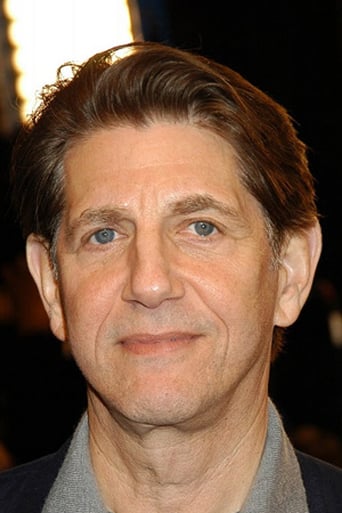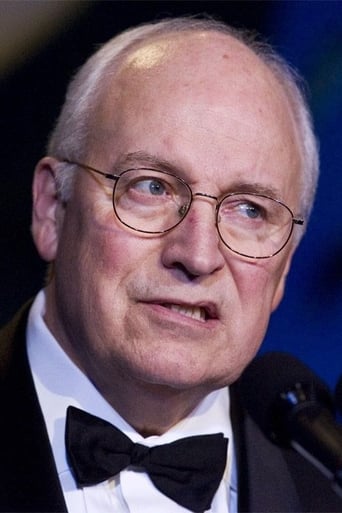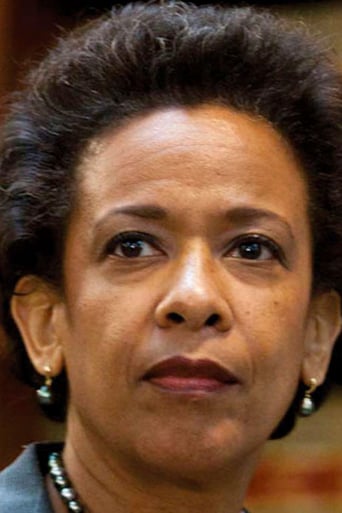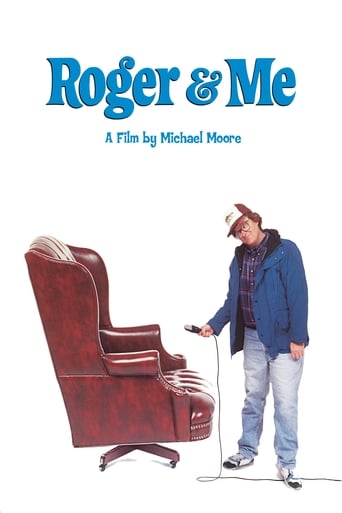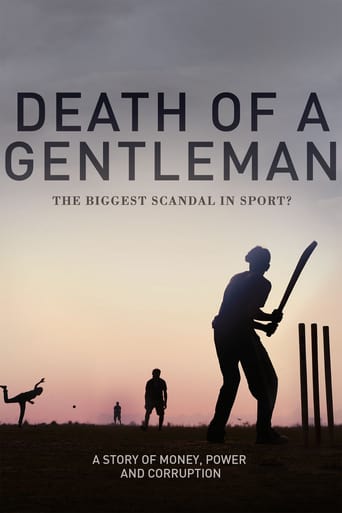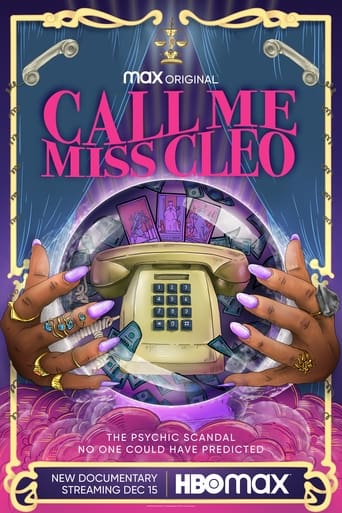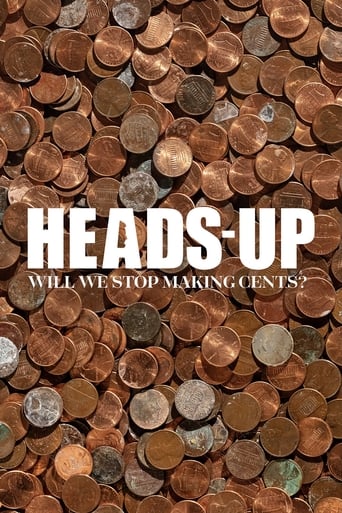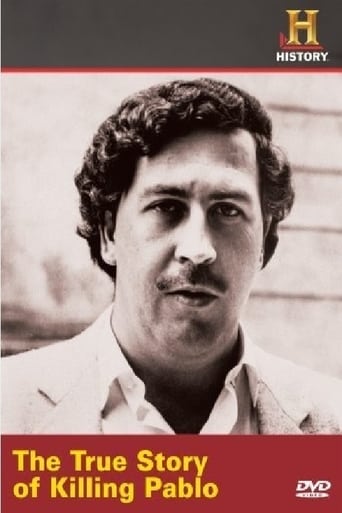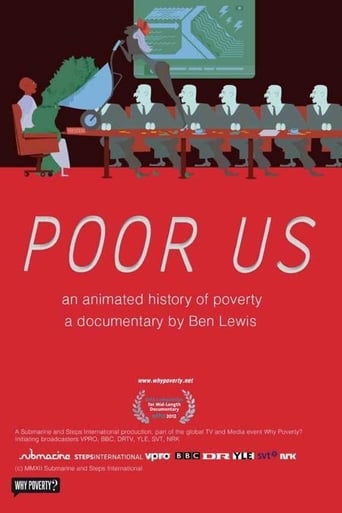Enron: The Smartest Guys in the Room (2005)
A documentary about the Enron corporation, its faulty and corrupt business practices, and how they led to its fall.
Watch Trailer
Cast


Similar titles
Reviews
everything you have heard about this movie is true.
Absolutely Fantastic
It’s an especially fun movie from a director and cast who are clearly having a good time allowing themselves to let loose.
It's hard to see any effort in the film. There's no comedy to speak of, no real drama and, worst of all.
If there is a main point to "Enron: The Smartest Guys in the Room", it's that intelligence and wisdom are not the same thing. Intelligence can be used for good or ill, and in this case, the smartest guys at Enron were bankrupt in the wisdom department. While for a time the executives' bank accounts may have contained millions, their judgments were in the red, and this bankruptcy of sagacity and prudence led to the downfall of their company. They were "smart" enough to cook Enron's books long enough to artificially raise their stock price for a time. However, in the end, they weren't smart enough to mold a business model which made legitimate profits. And the man who proclaimed himself as f-ing smart when he was at Harvard Business School, CEO Jeff Skilling, reveals himself to be the most morally bankrupt of them all. Skilling for all his "smartness" not only couldn't create a truly viable business, he was unwilling to own up to his mistakes. Avoiding the truth and hiding behind one's own lies is very stupid. "Enron: The Smartest Guys in the Room" is a thoroughly compelling documentary about one of the strangest episodes in US corporate theater. Enron for about 10 years, from circa 1990 to 2000, was the darling of Wall Street, perpetually convincing investors they could do no wrong. They continually posted earnings in areas where they had actually been losing millions. The goal of the executives of Enron became to keep the stock price of their company high regardless of actual performance. They found clever ways to hide losses, and if that's being "smart", they were definitely smart in spades. However, the piper eventually has to be paid, lest the piper will toot his horn and the town will have to pay a much higher price. In this case, the townspeople were all of Enron's investors aside from the "smartest" guys who cashed out before the ship sank.Skilling and the executives found an ingenious way to avoid paying the piper at least in the short term. They adopted what's referred to as "mark-to-market" accounting. Mark-to-market accounting is a tricky concept and essentially based on the idea that a party could reflect profits on a business transaction before the profits actually materialized. The numbers were based on current market values. For example, if a party bought a house for $100,000 and the current market price of the house was $500,000, the entity could show their net worth was $400,000 even though the party had not actually cashed in on the profit. Mark-to-market is used to evaluate stock portfolios. The challenge involved is that if the market fluctuates, in theory the transaction could be less profitable. Also, it's dangerous if the party uses mark to market in subjective areas. The executive's rationale was they should be able to reflect "profits" in mark to market simply because they had concocted a supposedly good business venture. However, Enron was showing profits in mark-to-market accounting for business deals which ultimately failed. One example explored in the documentary involved Enron's financing some power plants in India. However, they weren't smart enough to understand Indian economics. India's economy, because they are at best a second-world nation (some would argue a third-world nation) is not like that of the United States and Europe. Their currency is not worth what it is in the West, and India could never pay the high prices for energy Enron was expecting to charge them. The power plants Enron helped finance lay dormant. And yet, Enron cooked the books to show the deal with the power plants in India were already profitable because they "should be" profitable, based on the current market. It was as if they bought the house for $100,000, showed the house was worth $500,000, but in fact, their investment was a loss because they paid $100,000 into a house which couldn't be resold for anything. Another example was a supposed enterprise with Blockbuster Video for video/movie streaming on the internet. Enron claimed they had developed the technology and already had customers subscribing to the service, but in reality, nothing had come of it. Blockbuster Video, once a viable video rental enterprise, is now largely defunct having been displaced by video-on-demand technology developed and offered by Netflix, Comcast, and Amazon. Enron at one point "claimed" they had developed on-demand technology and were reflecting mark-to-market profits on their books for an enterprise which was essentially fabricated.As badly as Ken Lay and Andy Fastow are portrayed, the executive who appears the worst is Jeff Skilling. Despite mounting evidence that Skilling was right in the center of the fraud, he never comes clean. He never admits he didn't pay the piper. Ironically, his company was constantly playing "Survivor" in which 15% of the workforce was automatically laid off every year for sub-par performance. If this criteria was put on Skilling himself, he would have been fired. So many of Skilling's business ideas were either duds or failed to produce the desired results. Now Skilling is the smartest guy in prison, and Enron is history. If they were the smartest guys in the room, I'd really like to see who were the dumbest.
Enron: The Smartest Guys in the Room is a documentary based on the best- selling book of the same title by Fortune reporters Bethany McLean and Peter Elkind.It is a study of one of the largest business scandals in American history. McLean and Elkind are credited as writers of the film alongside the director, Alex Gibney.The documentary examines the collapse of the Enron Corporation, which resulted in criminal trials for several of the company's top executives; it also shows the involvement of the Enron traders in the California electricity crisis. The film features interviews with McLean and Elkind, as well as former Enron executives and employees, stock analysts, reporters and the former Governor of California Gray Davis.The documentary opens with a reenactment of the suicide of Enron executive Cliff Baxter, then travels back in time, describing Enron chairman Kenneth Lay's humble beginnings as the son of a preacher, his ascent in the corporate world as an "apostle of deregulation," his fortuitous friendship with the Bush family, and the development of his business strategies in natural gas futures. It points out that the culture of financial malfeasance at Enron was evident as far back as 1987, when Lay apparently encouraged the outrageous risk taking and profit skimming of two oil traders in Enron's Valhalla office because they were bringing a lot of money into the company. But it wasn't until eventual CEO Jeff Skilling arrived at Enron that the company's "aggressive accounting" philosophy truly took hold. The Smartest Guys in the Room explores the lengths to which the company went in order to appear incredibly profitable. Their win-at-all-costs strategy included suborning financial analysts with huge contracts for their firms, hiding debts by essentially having the company loan money to itself, and using California's deregulation of the electricity market to manipulate the state's energy supply. Gibney's film reveals how Lay, Skilling, and other execs managed to keep their riches, while thousands of lower-level employees saw their loyalty repaid with the loss of their jobs and their retirement funds. This is a meticulously researched and ably handled chronicle of one of the largest corporate scandals in American history.Also,it is a deft, entertaining and infuriating documentary about one of the most egregious cases of corporate corruption in American history that one does not require an interest in business affairs to fully appreciate it.Finally,it one will surely get mad when he watches it.
I'll be the first to admit that this film is good but not great about ENRON. All politics aside, I was just left hanging in the balance wanting MORE. Though I can appreciate their limited access to outside footage and English-speaking counterparts, certain scenes tended to drag on a bit and left me wondering what could have been.That said, per my subject heading, I feel that this should be REQUIRED viewing for any concerned citizen grappling with the media coverage and news-spin of this and all other wars. Much like BRAVO's "Anatomy Of A Scene", the unfolding of the 'end of the war' and the subsequent toppling of Saddam's statue in the square both serve as serious examples of the news coverage of ENRON vs. 'The Big Boys'. It's just completely different when seen through the intelligent, capable eyes of the Al-Jazeera staff (than the Enron Boys) than what we're spoon-fed by Fox, et. al. Check it out...... Really.....
Overall I found this to be a decent recap of the Enron saga, or at least the pre-trial portion thereof. However the film is necessarily simplistic, and there's a high dose of cable-documentary cheese (re- enacted funerals, gratuitous topless dancers, inappropriate Oingo Boingo songs, etc.) I have not read the McLean/Elkind book yet but just re-watched this DVD. A few of their interviewees are irrelevant (Kevin Phillips; a consumer watchdog person; the local priest). For some reason it is never explained that the blonde with the Merchant-Ivory accent arrived via Vinson Elkins, attorneys at law, although I think this is rather an important tidbit. With your average Mark Cuban production you could do far worse; I predict it will go over big with assistant professors of sociology in Santa Monica.Rolled my eyes at the part about The Milgram Experiment, but did get a good laugh when the narrator described Gray Davis as a "then-likely Presidential candidate"







